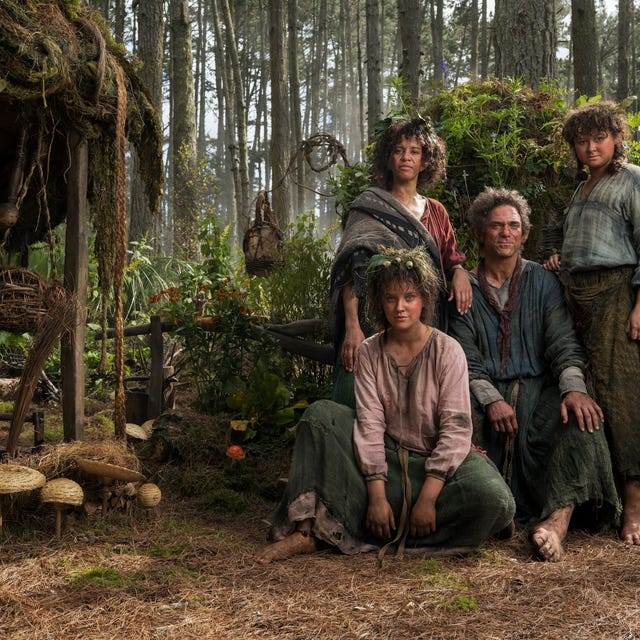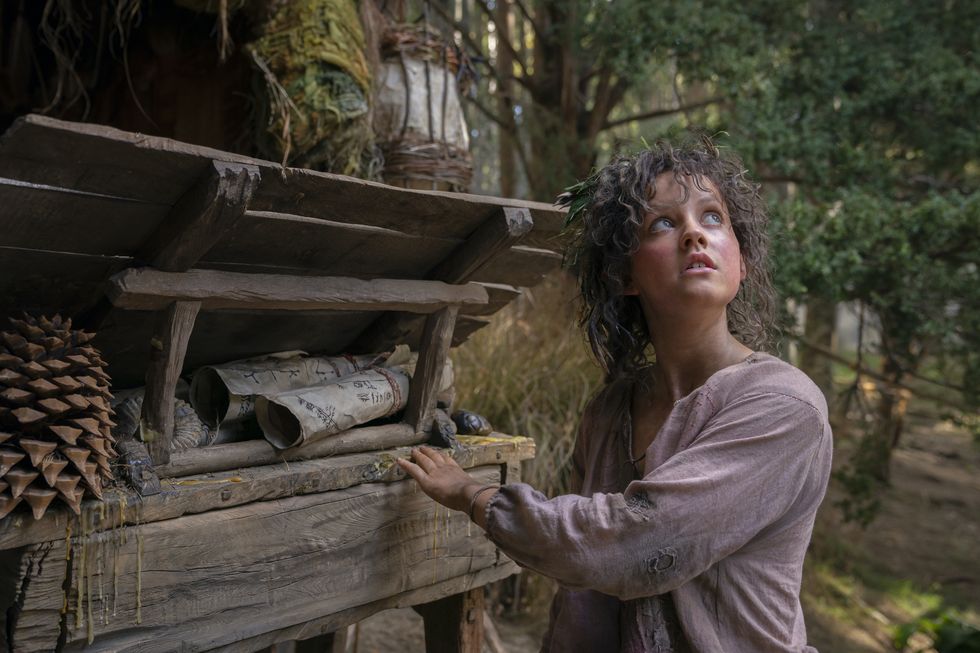You may have a few questions while watching Amazon’s eye-wateringly expensive new series The Lord of the Rings: The Rings of Power. Why does so much of this remind me of a screensaver? Where’s Gandalf? Have the elves always been this attractive? Is that naked man who fell from the sky Gandalf? But here’s the real Middle-earth mystery: what the hell are harfoots, and why do they speak with Irish accents?
In the opening two episodes, which are out now on Amazon Prime, we traverse Middle-earth finding out what Galadriel and Elrond were up to thousands of years before Peter Jackson’s trilogy (mostly fighting evil and chatting to dwarves). By the time we land in the rural stretches of Middle-earth, where hobbits traditionally live, everything seems to be in its right place: they are a rustic bunch, who while away the time gathering berries, organising parties and looking to the skies for signs. That is, until they open their mouths and start calling each other harfoots.
Is a harfoot a hobbit?
Sort of. Harfoots are ancestors to the hobbits you know from the films, like Frodo, Samwise, Merry and Pippin. There are in fact three ancestral breeds of hobbits: harfoots, stoors, and falllohides. And while they all have differentiating features – fallohides never grew beards, for example – we only need to concern ourselves with harfoots for the time being. According to the source material, hobbits didn't get up to much in this age of Middle-earth.
The harfoots are a neat loophole for the show’s creators; they provide a more relatable way into the story than those snooty elves, and they could have done interesting things in this show’s timeline. The showrunners have been clear about going off-script, and there are brand-new characters in this show. In fact, this entire series is an inventive navigation of IP and licensing rights, and the harfoots are just one example of that.
Why do the harfoots have Irish accents?
Good question. J.R.R. Tolkien died in 1973 and so was not available to advise on Amazon’s new series, nor did he make it very clear how his characters should sound. Most audiences’ understanding of Middle-earth dialects probably stems from Peter Jackson’s films. We have elves (slightly posh English people), dwarves (Gimli had a Welsh accent) and hobbits (short creatures with a Midlands twang). That characterisation is as lazy as it is effective.
The show’s dialect coach, Leith McPherson, told Inverse that the harfoots have an “Irish base to their accent” but don’t sound as if they’ve grown up on a “particular cross street in Dublin”. She continued: “It’s familiar, but different. It’s not like an entirely new dialect never heard on Earth before, but it is intended to have an otherness.”
It is definitively a choice to make the simple-minded, rural folk of Middle-earth sound Irish. Should a show this expensive (the first season alone is set to cost $465 million) have maybe thought this through more? It's certainly going down as well as you think it might be in the shire (sorry, Ireland). Writing in The Irish Times, Ed Power notes: “The portrayal of ‘Irish’ characters as pre-industrial and childlike – simpletons, really – threads neatly into the Anglosphere’s rich tapestry of disdain for Celtic peoples.”
As the old adage goes: you don't get to a $500 million budget without making a few enemies.
Henry Wong is a senior culture writer at Esquire, working across digital and print. He covers film, television, books, and art for the magazine, and also writes profiles.














